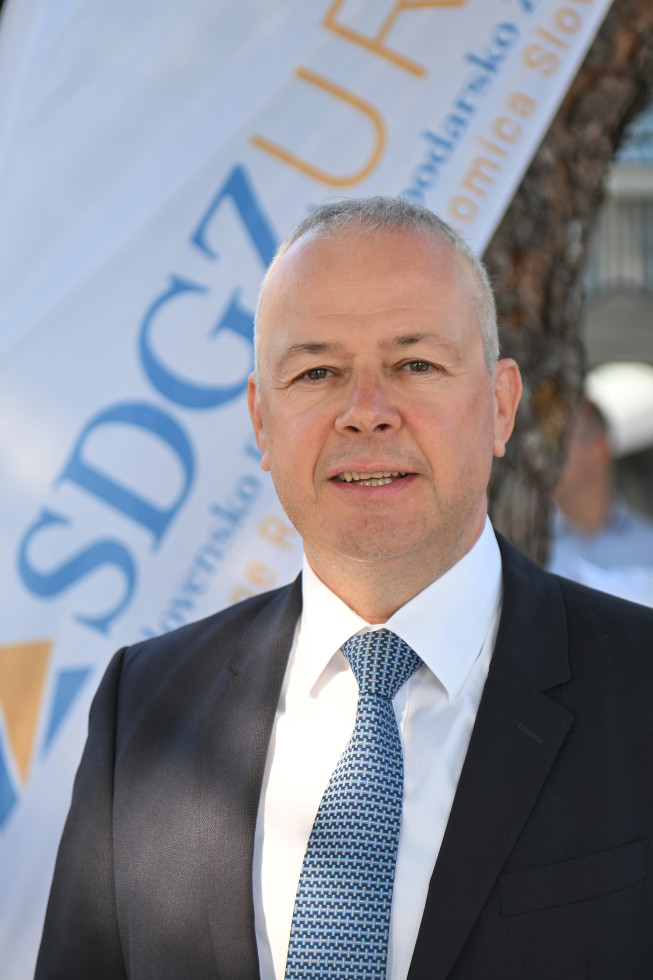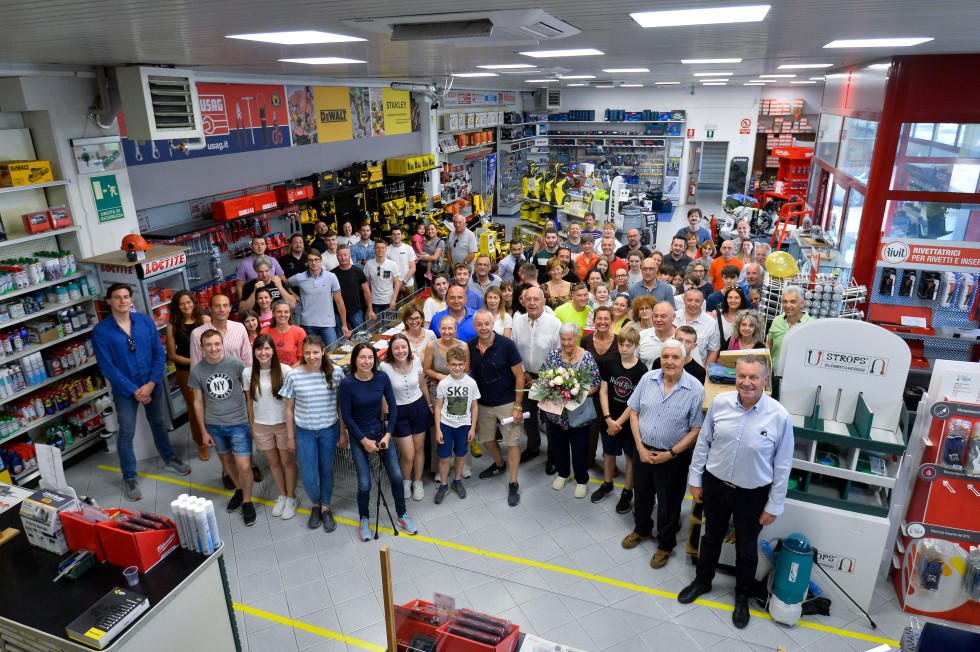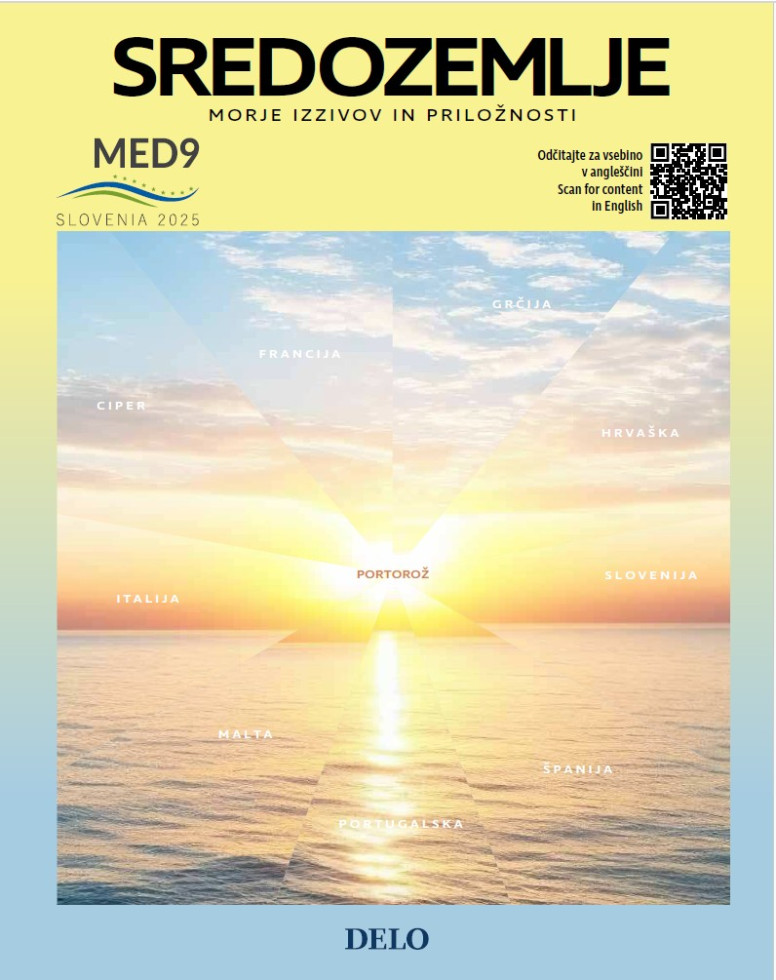We, Slovenians, must take care of our schools, associations, media, entrepreneurship and territory
Slovenians live in the provinces of Trieste, Gorizia and Udine, and according to various estimates, their number ranges between 30,000 and 50,000. The variation is wide due to the absence of official census. Decades of coexistence with Italians and other minorities have also contributed to the strong assimilation of the population, including many mixed marriages, which has significantly changed the ethnic self-identification of the population. Here, Multiculturalism is lived in the full sense of the word.
"The situation here is still quite good. The Slovenian minority has its own kindergartens, primary and secondary schools and a higher secondary school, but unfortunately we still do not have a Slovenian university. Education is an extremely important factor for the development and survival of our language and culture. Our educational institutions are of a very high quality, and in recent years, we have also welcomed children from Italian families who attend Slovenian kindergartens and primary schools and then continue their education in Italian institutions. This further confirms that our schools are of high quality, and we are also pleased that Italians are becoming more open to the Slovenian minority," says Fabio Pahor.
Expanding the family business
"My family comes from the Gorizia Karst – from Jamlje on my father's side and from Doberdob or Poljane on my mother's side. After World War II, my mother's family moved to Laško in the Monfalcone and Ronchi area, where industry was growing and offering jobs, while agriculture in the Karst region was declining. In 1971, we moved from Laško to Duino. Our parents wanted us children to grow up in a Slovenian environment and to be more integrated into the Slovenian community. I have three sisters and a brother, and we all first attended kindergarten and primary school in Duino, then secondary school in Nabrežina. We went to higher secondary school in Trieste, and then each of us followed our own path. I attended the France Prešeren Lyceum in Trieste and completed my university studies at the Faculty of Sociology in Urbino," he says.
After completing his studies, Pahor began working in the family business. "Back in the 1960s, my father founded a construction company and later moved into real estate, and my brother and I entered the same field. My father stayed focused on real estate, but we diversified into retail and then expanded into many other sectors. We have a retail and wholesale business selling industrial tools, and the Pahor Group also includes tourist facilities, i.e., hotels and restaurants. We also own the Kohišče agricultural estate in Duino, where we produce wine, in addition to other goods. We opened branches in the former Yugoslav republics – we thus operate in Bosnia and Herzegovina, Serbia, North Macedonia and Kosovo, where we expanded from the distribution of industrial tools into auto repair shops and tire services. On Slovenian market, we operate directly from across the border. We also have a logistics centre in Milan for supplying northern Italy. Today, the Pahor Group has around 70 employees and generates an annual turnover of around EUR 50 million," says Pahor, the head of the organisation of professions representing entrepreneurs, craftsmen, retailers and sole traders, and the founder of FerroJulia, a company distributing industrial tools across Italy and the Western Balkan countries.
"Slovenian economic activities in Italy are also in good shape and developing well. While we don’t have major industrialists among us, we are strongly present in small and medium-sized companies in all sectors, from trade and crafts to hospitality and tourism," explains Pahor, who, however, is far from being focused solely on business.
"In cultural life, Slovenians in Italy are very active; we have many cultural associations and choirs. We understand how much this contributes to preserving our heritage, while at the same time promoting coexistence with Italians and other minorities. Nearly every village has a sports club, and in some sports, Slovenians really stand out even at the national level, particularly in basketball, volleyball, table tennis and roller skating," says Pahor, who is a member of the Fantje izpod Grmade choir, and all three of his daughters are also active singers.
Close ties with their homeland
"My wife Vlasta, who comes from Števerjan on the Italian side of Brda, and I have been active in our community since we were young, and our daughters have naturally followed in our footsteps. All three studied in Ljubljana. Nina is married and stayed in Ljubljana, where she works at the Slovenian Academy of Sciences and Arts (SAZU). She is currently pursuing her PhD as a researcher in the Department of Slovenian Studies and Comparative Linguistics at the Faculty of Arts. Ivana works in marketing and travels a lot, while Petra is still studying at the Faculty of Education, but she already teaches occasionally, substituting for colleagues at our school across the border in Italy," our interlocutor explains proudly.
Thanks to a harmonious and close-knit family, Pahor says he is better able to cope with all the business challenges in a demanding market. Alongside his responsibilities in the Pahor Group, he also bears a significant role at the helm of the Slovenian Regional Business Association (SDGZ). "Among other things, the association helps Slovenian companies looking to enter the Italian market. Through our subsidiary Servis, we support customers from both Slovenia and Italy, as we understand partners on both sides. We have the experience and knowledge on both markets and thus we present a bridge between the Slovenian and Italian economies. Of course, we also help Italian companies intending to do business in Slovenia. A third of our clients are Italian and two-thirds are Slovenian. We market more in Slovenia, since Italy has several similar organisations specialising in entry to foreign markets. Still, they often contact us for information or advice regarding Slovenia. Italian companies coming here are mainly service providers — Slovenia is attractive to them from a tax perspective. Italians have also been investing in industry, for example the company Aquafil, which acquired Yulon. In the opposite direction, the focus is on transport companies from Slovenia and Croatia, construction companies (subcontractors), and some retail businesses, such as the Prunk butcher's shop that operates very successfully in downtown Trieste," says Pahor, who acts as a sort of business and cultural amphibian.
"We live and work in the Italian environment – I think in Italian 12 hours a day, we were raised in the Italian business culture, but we also understand the Slovenian one. Still, it is interesting how a person is always somehow torn between the two. Doing business in Milan is simply different than in Ljubljana — the business mindset differs. Italy is probably one of the most demanding countries in the world in terms of the complexity of its bureaucratic system. Slovenia is better in some areas, more difficult in others. In recent years, though, we’ve been hit with a wave of new administrative regulations and bureaucratic burdens, which reduce the competitiveness of entrepreneurs,” explains Pahor, who speaks very positively about his Slovenian homeland’s attitude toward the Slovenian community in Italy.
Support from politics
Maybe we sometimes lack unity, but that’s to be expected in a diverse environment - the key is to pursue common goals.
"We have excellent cooperation with the Ministry of the Economy, Tourism and Sport, the Office for Slovenians Abroad, and the Ministry of Culture. Slovenia has had a very constructive attitude toward minorities over the past 20 years, and ever since the country's independence, the relationship has been completely different than before. Maybe we sometimes lack unity, but that’s to be expected in a diverse environment — the key is to pursue common goals. One major achievement in recent years was the return of the National Hall in Trieste to the Slovenian national community. Politics played a big role in that, but it was something that the Slovenians across the border in Italy have always strived for. Both of our umbrella organisations were also very active and effective in the process," emphasises our interlocutor.
The younger generations are seeking new opportunities in agriculture, producing wine, cheese and other goods. We help them by introducing them to entrepreneurship, promotion and marketing.
"We will be able to survive only if we preserve our language and culture, if we have schools, associations and our own media, and also if we maintain control over our territory. We must be present and successful in fostering development, and politics must support us in this. From the economic side, in addition to the Slovenian Regional Business Association (SDGZ), the Slovenian Farmers’ Alliance is also very active in our area. Both organisations contribute in their own way to comprehensive development. In the Karst region, we have noticed a trend of returning to nature over the last 10 to 15 years, which is very positive. The younger generations are seeking new opportunities in agriculture, producing wine, cheese and other goods. We help them by introducing them to entrepreneurship, promotion and marketing. That is why we are always happy to see our fellow Slovenians from the homeland visit us to get to know our way of life and to see what we are creating and producing," explains Fabio Pahor.
Every May, his family, together with their colleagues, organises the Kohišče hike, a 10-kilometer-long enogastronomic, historical and educational walk, during which visitors experience the beauty, landmarks and culinary delights of the Karst region around Duino.





